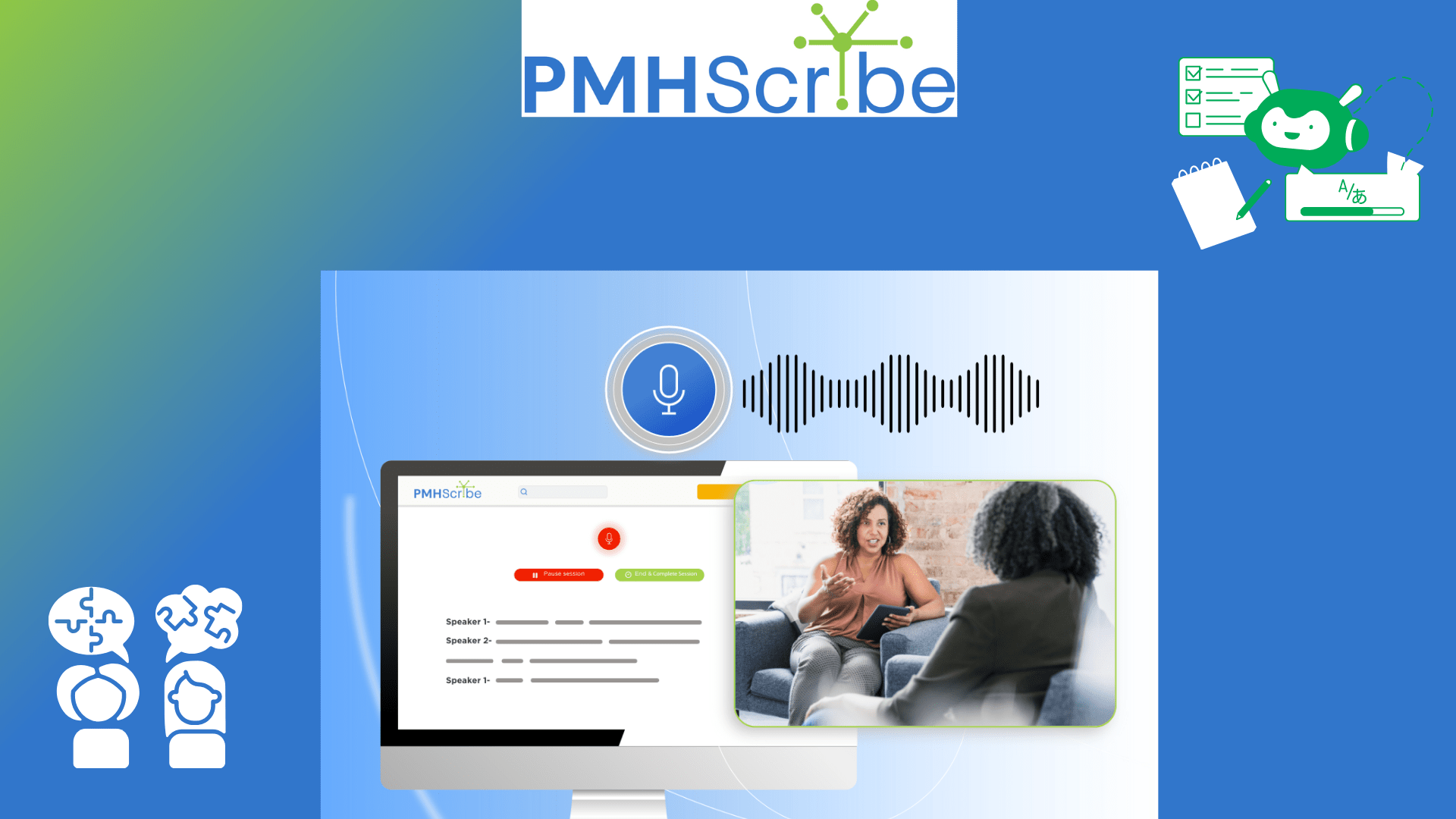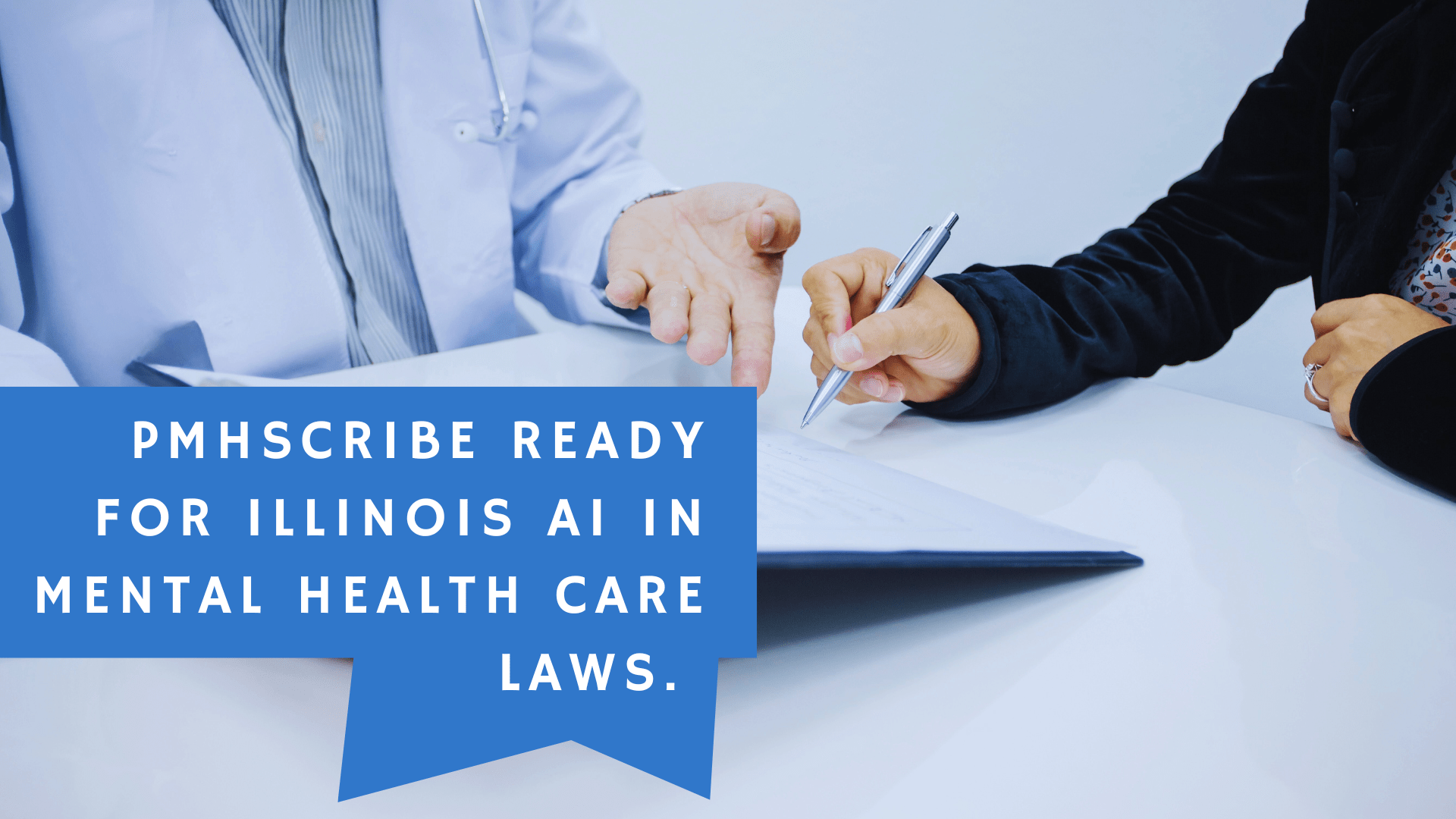Artificial intelligence is reshaping healthcare, with AI scribes becoming one of the fastest-growing tools in psychiatry, counseling, and mental health care. But while most AI scribes focus on convenience, very few ask the most critical question:
Who should be allowed to generate clinical documentation with an AI?
At PMHScribe, our answer is clear. Only licensed, credentialed professionals. That’s why we are the only AI scribe that requires NPI or license validation before a provider can access our platform.
This safeguard isn’t just a feature. It’s an ethical boundary — one that aligns with existing healthcare standards, anticipates new legislation, and protects patients, providers, and the integrity of medical documentation.
Why Open-Access Ai Scribes Introduce Risks
Many AI scribes use an open-access model: anyone with an email address can create an account. At first glance, this appears to be innovation without barriers. But in healthcare, open access isn’t a virtue — it’s a liability.
Open-access scribes risk:
- Blurring professional boundaries. Patients, students, or unlicensed individuals could use them to generate chart notes, compare transcripts, or even simulate treatment recommendations — activities that belong strictly under clinician oversight.
- Encouraging misuse of decisional tools. Some scribes incorporate features such as treatment suggestions, medication-related content, or documentation templates that appear indistinguishable from professional notes. Without license validation, these tools may be used by individuals without the authority to interpret or apply them.
- Eroding ethical safeguards. When anyone can generate medical records, it diminishes the clarity of accountability in clinical documentation.
The result: a gray zone where powerful AI tools can be misused outside their intended scope.
How Health Tech Already Sets the Standard
Healthcare has long recognized that not every tool should be open to the public. Consider:
- E-prescribing platforms: Require NPI validation to prevent anyone without prescribing authority from writing prescriptions.
- Laboratory ordering portals: Restricted to licensed clinicians to ensure only qualified providers can order, interpret, and act on diagnostic tests.
- Electronic Medical Records (EMRs): Controlled by credential checks so that only licensed staff may create or manage patient records.
- OpenEvidence: A clinical resource platform that requires NPI verification to ensure that evidence-based medical information is provided only to practicing healthcare professionals.
PMHScribe brings this same professional standard into the world of AI scribes. Just as no one would want patients or students issuing prescriptions from an e-prescribing tool, we believe that no one should use an AI scribe to generate clinical documentation without proper credentials.
PMHScribe’s Approach: NPI Validation + Ethical Guardrails
NPI or License Validation
Every U.S. provider must validate their NPI (National Provider Identifier) to access PMHScribe. This ensures the system is restricted to licensed professionals: psychiatrists, nurse practitioners, physicians, counselors, therapists, pharmacists, and other credentialed clinicians.
Limited Exceptions
- Students in training programs may be granted supervised access.
- Canadian-based clinicians without NPIs are assessed individually to confirm licensure and professional standing.
These exceptions are deliberate and carefully evaluated, preserving the principle that only verified clinicians are permitted to use the tool.
Closed Workspace
Unlike open consumer AI platforms, PMHScribe operates in a closed workspace. Instant speech-to-text in a HIPAA secure environment, no recordings stored, and data is not used to train public AI models.
Decisional AI With Boundaries
PMHScribe incorporates decisional AI to assist professionals by:
- Recognizing therapeutic techniques and modalities used in session.
- Delivering structured medication education at the point of prescribing.
- Generating CPT/ICD-coded billing statements.
- Providing clear patient education summaries.
These are not generic transcription features — they are decisional supports. That’s why restricting access through NPI validation is not optional, but essential.
Anticipating Legislation: HB1806 and Beyond
Regulators are already drawing boundaries around healthcare AI.
In Illinois, HB1806 (104th General Assembly) requires that:
- AI may be used for administrative or supportive functions, but licensed providers remain responsible for outputs.
- AI cannot independently deliver treatment, generate therapeutic communication, or create clinical recommendations without the oversight of a clinician.
- Clients must give informed, written, and revocable consent for recordings or transcripts if applicable.
By embedding NPI validation and clinician-only access, PMHScribe is already aligned with these standards — and ready for future regulations. We are also prepared to support your practice with our Responsible AI Assessment Audits, Data Protection Impact Assessments, and traditional HIPAA audits.
The Ethical Imperative
Requiring NPI validation isn’t just about law — it’s about ethics.
- Scope of practice. Just as non-prescribers shouldn’t use e-prescribing software, non-licensed individuals shouldn’t generate psychiatric notes with AI.
- Professional accountability. With credentialed access, every note produced has a transparent chain of responsibility back to a licensed provider.
- Patient trust. Clients can feel confident that unverified or untrained users aren’t handling their data.
- Guardrails for AI. Decisional features, such as therapy recognition and medication education, only make sense in the hands of those trained to interpret them responsibly.
Ethically, patients deserve to know their medical documentation is created only under professional oversight. Clinicians deserve tools that respect — not erode — their scope and responsibility.
Raising the Bar for AI Scribes
By requiring NPI validation, PMHScribe sets itself apart as the only AI scribe that:
- Restricts access to credentialed professionals.
- Aligns with longstanding health tech standards in prescribing, lab ordering, and EMRs.
- Anticipates and complies with AI-specific legislation, such as HB1806.
- Embeds decisional AI features responsibly, within ethical and professional boundaries.
In an era where convenience often overshadows caution, PMHScribe is dedicated to elevating the ethical and legal standards for AI in healthcare.
Key Takeaway
PMHScribe is the one of the only AI scribe that requires NPI or license validation, ensuring that decisional AI features remain in the hands of licensed professionals and thereby protecting patients, providers, and the integrity of clinical documentation.




